

Our School is committed to safeguarding and promoting the welfare of children and young people. The School expects all teaching staff, non-teaching staff, volunteers, students and visitors to our school to



Our School is committed to safeguarding and promoting the welfare of children and young people. The School expects all teaching staff, non-teaching staff, volunteers, students and visitors to our school to
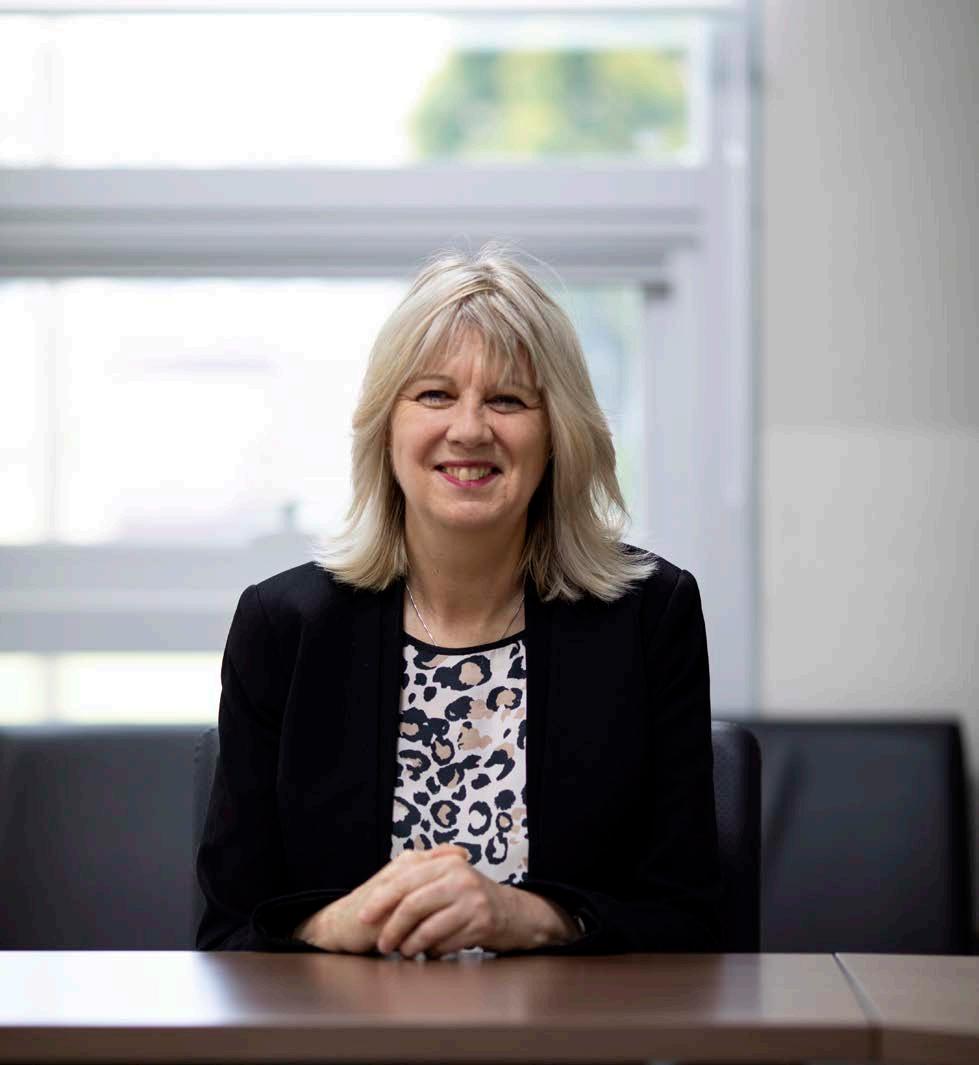
North London Collegiate School Jeju is a school that draws on a long and established history of educational excellence. The pioneering work of Frances Mary Buss, 160 years ago, in North London, paved the way for an exciting and inclusive movement in the education of young women.
NLCS UK went on to build on this innovative approach to education and prides itself on its clear vision of academic excellence and passion for subject knowledge and integrity, as well as its holistic approach to all aspects of an exceptional education.
At NLCS Jeju we are building on these foundations to create an environment where each student is valued and develops his or her full potential to achieve academically and holistically. We know that our students develop their passions for academic and intellectual study in a challenging and risk-taking environment. Our current parents choose NLCS Jeju as they recognise our students de velop self-confidence, a sense of inner worth and responsibility and yet they are cheerful, balanced, at ease with themselves and each other. Students have tremendous enthusiasm for the challenges before them. They might add that we succeed in combining academic excellence with a wealth of co-curricular opportunities, all underpinned by a deep commitment to the individual needs and enthusiasms of each student.
As Principal, I am committed to ensuring that the passions and potential of each individual is unlocked. We will strive to ensure every student at NLCS Jeju is valued in his or her own right, encouraged to develop his or her talents to the full in a community where there are no stereotypes and where every achievement, however small, is celebrated. We nurture each student through recognising and supporting his or her individual and unique needs within a pastoral environment, where no child is unsupported at our school, or at risk of ever ‘slipping through the net’.
It is the people and community which make NLCS Jeju such a special place. Our students have a thirst for knowledge and learning and so are a delight to teach. Our students and staff enthusiastically embrace the range of experiences on offer taking full advantage of our excellent facilities within a prime location on the beautiful island of Jeju. We have a tremendously supportive partnership with our parents who contribute a huge amount of time and energy to supporting our activities and events.
We wish you all a wonderful year at NLCS Jeju.
Ms. Lynne Oldfield PrincipalWe are a school that prides itself on the ambitious education we deliver. In part, this is possible due to the inspiration we draw from our mother school, NLCS UK and the important bond that has developed between the two institutions.
We are fortunate that our relationship is genuine and close. We have benefited greatly from NLCS UK carrying out regular inspections and monitoring visits of our school, as well as interviewing and training all our new staff at NLCS UK.
As the school has grown and developed, it is inevitable that we have carved out our own identity and we are proud of how this is emulated in our own aims which, whilst rooted in the pioneering work of NLCS UK, have been adjusted to fit our own sense of what makes for a world class, holistic, international education in Korea.

A common set of beliefs and values underpin the common and distinctive ethos of all North London Collegiate Schools. In particular, we hold:
01
A belief in the potential of young people – that we can foster the drive and determination that will enable them to make a difference to the world;
A belief that each student is unique, and that it is our responsibility to provide them with “floors, not ceilings” so that we can nurture their individual talents, confidence and self-worth and enable them to “run their own race”;.
A belief that varied perspectives enrich our schools and wider communities, and that we should embrace, encourage, celebrate and learn from difference and diversity;
A belief that learning is an end in itself and is something to be prized, and that education means much more than following a prescribed examination syllabus;
07
A belief in the transformative power of academic engagement, and that a culture of scholarship should extend beyond the classroom and should permeate the wider life of our schools;
A belief that academic study involves a determination not to take things at face value, and that intellectual curiosity and critical inquiry are central to the success of our students in their time at school and in their future lives;
A belief in the importance of service to others – of looking outwards, and contributing positively to society and the wider world;
08
A belief in the importance of maintaining a caring and warm community, and nurturing a positive spirit of collaboration in all our interactions.
Our aims are based on those of NLCS UK and signal our overall intention and where we aspire to be.
To provide an exceptional educational experience, based on the traditions, ethos and practices of North London Collegiate School, UK.
6 To provide an ambitious academic education and to enable each student to make the most of their gifts.
7 To maintain a team of teachers to whom each student is important and who can inspire subject passion and enthusiasm.
8 To enable all students to recognise academic excellence and realise that it is attainable.
To create a home where individuals are nurtured and the whole personality can grow.
To foster a caring and respectful community characterised by excellent relationships between staff and students and between the students themselves, of whatever age, culture and background.
To encourage all students to take risks and try something new in an environment which embraces all aspects of educational challenge.
To develop an outward looking, internationally minded, community of young people who have a clear understanding of the value of commitment and service to others.
Our objectives are a more specific embodiment of our aims and represent the specific ways in which our aims will be achieved, related to student outcomes.
Our students will graduate with exceptional academic skills across a broad range of disciplines. They will have the opportunity to develop a depth of knowledge in areas that they are passionate about and will fully realise their potential. Our students will have confidence in their own abilities and will be aspirational thinkers who have confidence in their own abilities.
Our students will leave us with a clear sense of where their passions and interests lie having experienced a wide variety of activities and opportunities outside of our formal curriculum.
Our students will be prepared for a world with continuously fading borders and where international mindedness is essential. Our students will be compassionate and have a commitment to serving others.
Our students will develop a strong set of moral and ethical values that determine how they act and interact with others.
Our students will not only access leading universities around the world, but they will be equipped with the skills, attitudes and attributes needed to be successful, happy and healthy for the rest of their lives.
Our students will leave us as resilient and confident young people who think independently.
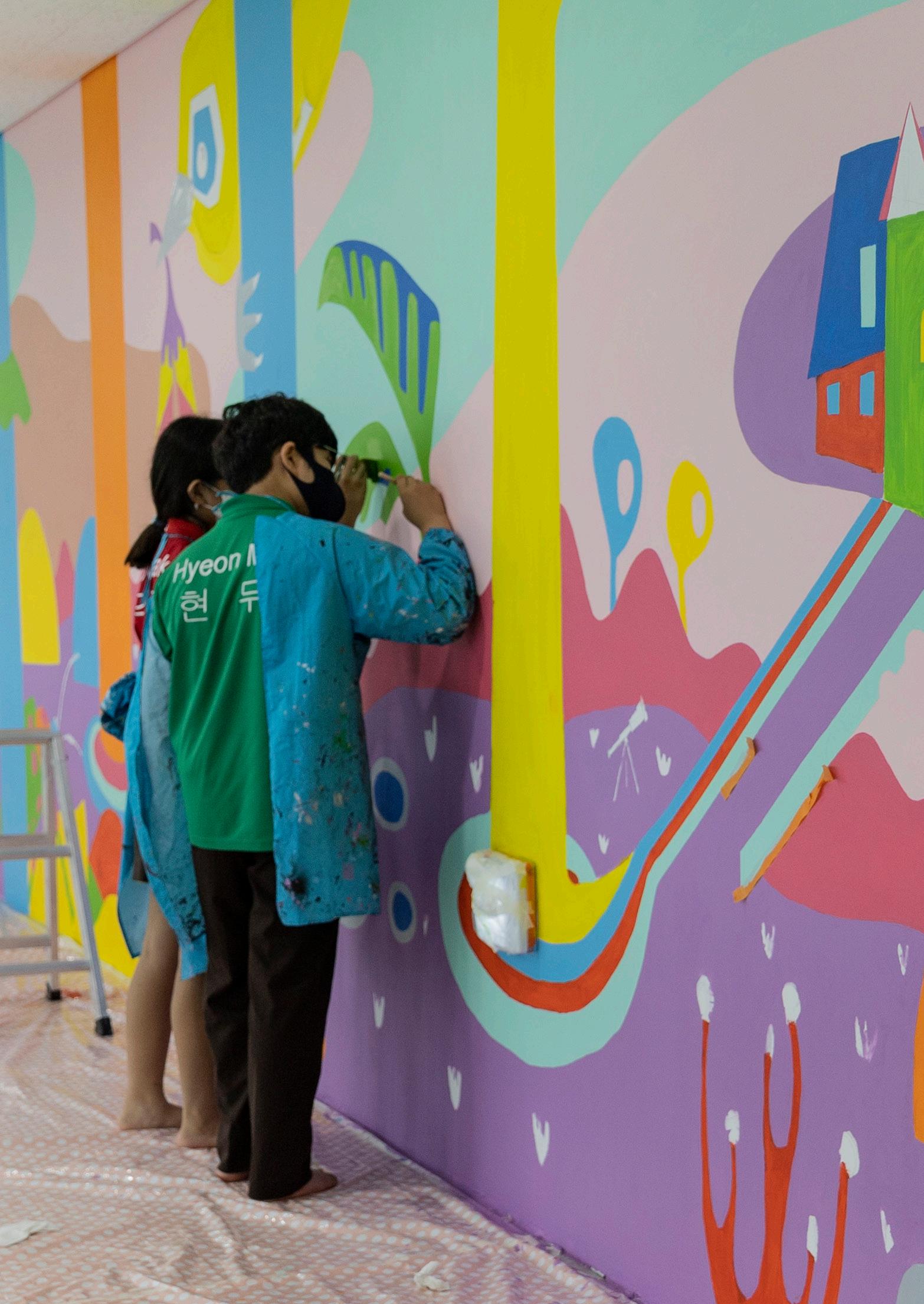
*INSET - School closed for teacher training
For the most up to date term and calendar dates, visit https://www.nlcsjeju.co.kr/parents/term-dates
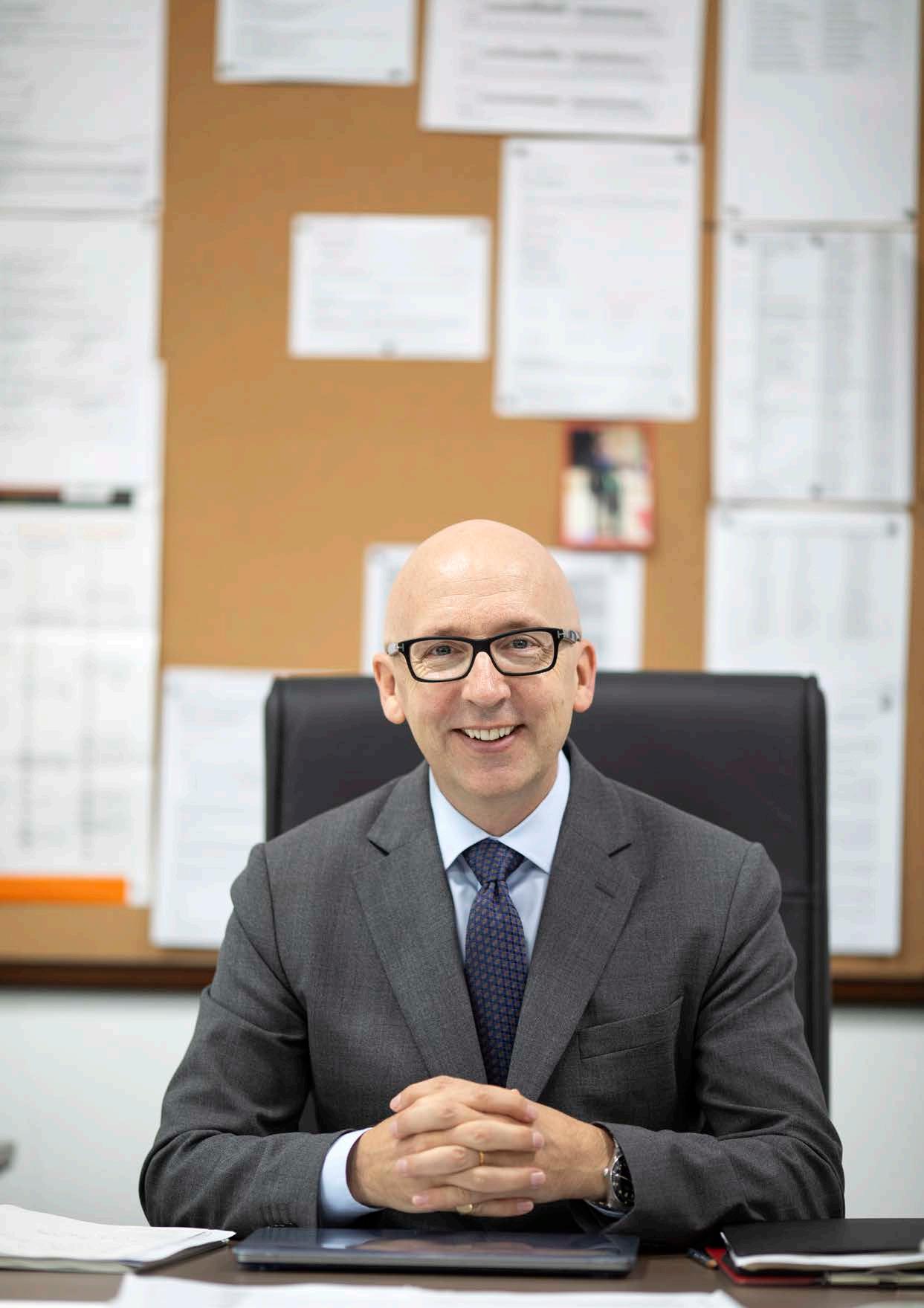
At NLCS Jeju Junior S chool we value e very child as an individual and we find out what suits each individual child. We are a school with a strong academic core, tremendous pastoral support and a co-curricular programme which offers something for everyone. We are a school with a big heart and we understand that we are preparing children for a f uture which will be very different to how it is now.
Our wonderful environment and excellent facilities allow children the freedom and opportunities to de velop their t alents. Children grow in confidence while at NLCS Jeju; they discover abilities and make friends. They grow the s trong roots to give them stability and strength and the wings to enable them to begin the journey to achieve their dreams and ambitions. We want children to be proud of themselves and respectful and tolerant of the individuality and abilities of others.
We are proud of our academic achievement as well as our growing sporting reputation. The quality of music and art that takes place here in the Junior School speaks volumes about the talent of the children we have here. I also strongly believe that the secret to success is hard work. Our children work hard but it is clear to see how much fun and enjoyment they gain from their days at school.
We hope you too love our wonderful facilities, our state of the art Junior School building, created to offer children a superb learning e xperience. Our greatest asset however is our t alented, de dicated and inspirational s taff who provide outstanding teaching, subject knowledge and pastoral care.
I am looking forward to another excellent year for our Junior School.
Mr. Jeremy Freeman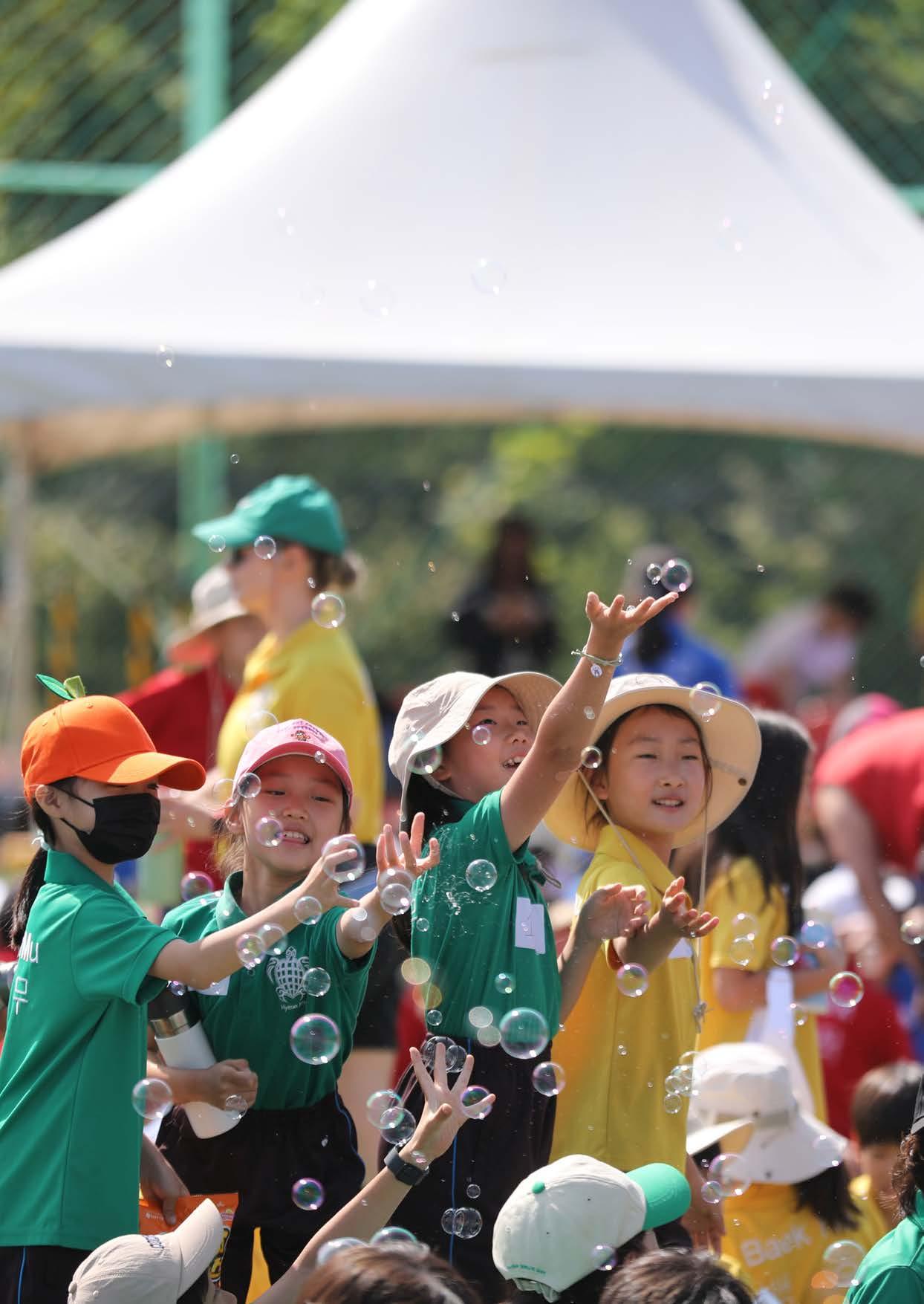
HEAD OF JUNIOR SCHOOL
• Overall responsibility for the Junior School
DEPUTY HEAD with specific responsibility for Lower School
• Day to Day running of the Lower School.
• Overall pastoral and academic responsibility for lower school students.
• Whole Junior School cover.
• Staff duties.
• Tutor programme in Lower School
• Admissions for Lower School
• PSHE
• Lower school budgets
• Behaviour Policy
• Junior School Safeguarding
• Junior School calendar and events
• Student leadership
ASSISTANT HEAD with specific responsibility for First School
• Day to day running of the First School.
• Line manage First School staff
• SEL(Social Emotional Learning) programme in First School
• Admissions for First School
• Overall pastoral and academic responsibility for the first school students.
• Intimate Care
DEPUTY HEAD Academics
• Curriculum and curriculum development
• Assessment and student data
• Subject and Curriculum review
• Curriculum guides
• Line Manage HoDs and Subject Coordinators
• Academic monitoring
• Reporting and Parent Consultations
• Liaise with Whole School timetabler
• Student Academic tracking
ASSISTANT HEAD Values, Enrichment and Engagement
• Learning Habits
• Line manage Beyond the Curriculum Coordinator and liaise with AVP Beyond the Curriculum
• Daffodil Club organisation and oversight
• Student Council
• Enrichment Days (In conjunction with AH Academic)
• Learning Support
• Line manage Learning Assistants
• Junior School enrichment
• Junior School calendar and events
In addition to teaching duties and subject specific responsibilities, a Head of Subject has the following key responsibilities within his/her curriculum area:
• Design and implement a bespoke, progressive curriculum across the Junior School.
• Create, share and work towards the completion of a departmental development plan, in collaboration with the AVP Academic.
• Monitor the attainment and progress of all children within the curriculum area.
• Support teachers in implementing the curriculum in the provision of curriculum materials, appropriate resources and PD.
• Lead the specialist teaching team, if applicable.
• Manage the timetable of Learning Assistants or Technicians aligned to the department.
• Liaise with the First School Assistant Head to ensure high-quality provision.
• Carry out monitoring procedures in accordance with the monitoring calendar.
• Maintain and fairly distribute resources across the Junior School.
• Liaise with the appropriate Head of Department, Senior School.
• Ensure that the curriculum area is well-represented in CCA and Bryant activities, providing opportunities for all children to experience high-quality extra-curricular provision in the subject(s).
• Contribute to enrichment opportunities in the Junior School by leading focus weeks, special events and House Competitions, when required.
• Report to the JLT about matters relating to the curriculum and assessment.
• Ensure that the environment in classrooms and shared spaces supports learning and is attractive and wellmaintained.
• Line manage Year 5 and 6 Tutors
• Support Pastoral Care of Year 5 and 6 students
• Support Academic Development of Year 5 and 6 students
• Work with DH Pastoral and DH Academic to ensure the wellbeing and academic progress of Year 5 and 6 students.
• Support safeguarding programme in Year 5 and 6.
• Liaise with Assistant Head Values Enrichment and Engagement to ensure CCA and Bryant programme is balanced and meets the needs of Year 5 and 6 students.
• Transition from Year 6 to 7.
• Organise inset Days and contribute to new staff and staff induction.
• Plan professional development calendar and events/training.
• Coordinate year group planning and assessment.
• Oversight of year group pastoral care including liaising with parents and JLT when necessary.
• Coordination of year group events.
• Year group link to JLT
• Oversight of academic and pastoral progress of year gourp.
• To ensure smooth day to day running of year group.
• To insure induction and continued support of new students
• Organise the specific House for House competitions and run House meetings.
• Take oversight of the students in the House and liaise with teachers or tutors if necessary.
• Meet with House Competition Coordinator when required to plan events.
• Plan and organise the House Competition schedule
• Liaise with Heads of Houses
• Meet with Director of Sport and SS House Competition Coordinator to plan schedule of events and competitions.
Senior Team
Lynne Oldfield
Henry Wiggins
Natalie Wilson
Crispian Waterman
Jeremy Freeman
Deputy Head
Richard Washington
Gayle Hume
Assistant Heads
Peter Evans
Mireille Alwan
Heads of Department
James Lillywhite
Simon Downes
Dong Kwang Lee
John Gilbertson
Megan Dyer Jones
David Smithson
Ruth Baker
Michelle Walker
Maggie Dai
Sophie Perry
Mellissa Woo
Akinyi Freeman
Jenny Wayte
Carolyn Moran
Louise Collier
George Fitzpatrick
Lawrence Whiteley
Jenna Hall
Tina Haystead
Rumer Bacon
Laura Gough
Leela Kent-Hume
Alexandra Lea
Thomas Stewart
Jaheeda Hussain
Daniel Edmonds
Principal
Vice Principal (Staff Relations and School
Organisation)/DSL
Vice Principal (Senior School Academic)
Vice Principal (Senior School Pastoral)/DDSL
Vice Principal (Head of Junior School)/DDSL
Deputy Head with Additional responsibility for Lower School and Designated Safeguarding Officer
Deputy Head (Academic)
Assistant Head (Head of First School)
- Reception - Year 2
Assistant Head for Values, Enrichment and Engagement
English and Head of JS Professional Development
Mathematics and Tutor
Korean and KSL and Tutor
Science and Tutor and Head of Jujak
Humanities and Tutor
Computer Science and Tutor
Music
Art and Tutor
Mandarin and Tutor
PE and Tutor
Reception Teacher
Reception Teacher (EYFS and KS1 Transition Coordinator)
Year 1 Teacher
Year 1 Teacher & Year Lead Teacher
Year 1 Teacher
Year 2 Teacher & Year Lead Teacher
Year 2 Teacher
Year 2 Teacher
Year 3 Teacher & Year Lead Teacher
Year 3 Teacher
Year 3 Teacher
Year 3 Teacher
Year 4 Teacher & Year Lead Teacher
Year 4 Teacher
Year 4 Teacher
Year 4 Teacher
Aisleen Renshaw
Melissa Green
Seong-Il Lee
GwangHo Im
Geun Lee
Eun Mi Jeong
Eunsil Cho
Grace Son
Lailai Luo
Sarah Martinez
Miriam Davies
Vivienne Brooks
Douglas Machin
Craig Wehrle
Glenn Roberts
Muhsin Bulut
Head of Year 5 and 6
English Teacher and Tutor
Korean Language and Social Studies Teacher and Tutor
Korean Language and Social Studies Teacher & Service Coordinator
Korean Language and Social Studies Teacher and Tutor
Korean Language and Social Studies Teacher and Tutor
Korean Language and Social Studies Teacher and Tutor
Korean as a Second Language Teacher
Mandarin Teacher and Learning Support and Tutor
Music Teacher and Tutor
PE Teacher and Tutor
Maths Teacher/Beyond the Curriculum Coordinator
Assistant Vice Principal - Beyond The Curriculum/Mathematics
Director of IT
Director of Sport
Examinations Officer

The School values proactive and timely communication between all stakeholders. It is important that parents read, understand and know exactly who to contact if there is a question about your child.
Lower School Office (Year 3-6) First School Office (Year R-2) Junior Boarding Beyond the Curriculum
08.00 – 17.00 Monday – Friday Contact the Junior School Office or First School Office.
All other times
Contact your child’s class teacher (Reception to Year 4) or tutor (Year 5 & 6) through iSAMS or email.
About your child
If you have a question about your child, please contact the class teacher or tutor in the first instance. The y are the first point of contact for matters that relate directly to your child. Our class teachers and tutors will contact you directly, via the iSAMS Portal with a Korean or Mandarin translation, to inform you of any academic, pastoral or medical concerns regarding your son or daughter.
Administrative
If your question relates to a more general school matter, please contact the relevant department from the above contact list.
All requests for absence, early leave, late arrival, and CCA or Bryant should be submitted using the JS Absence Request Form, available on the iSAMS Parent Portal. This can be found in the Forms section of the portal. The attendance requests should be submitted as soon as possible. The Junior School Office is unable to take an attendance request via phone call unless it is an emergency. Once the attendance request form is submitted, it goes automatically to the tutor, junior school office, and junior school CCA and Br yant. Therefore, no other communication with teachers or tutors is necessary.
Unplanned Bryant absences on Saturday morning
Please fill the JS Absence Request Form as normal or Email jscca@nlcsjeju.kr or call 064-793-8313 for the emergency.
If you are reporting the late arrival and early leave including CCA absence of your child, the Attendance Request Form should be submitted, and your child MUST check in before class and out after class at the Junior school office. (Reception and Y1-2 at the First School Office)
SeeSaw
Every class, tutor group and House has a Seesaw account that is updated regularly with pictures and notices. Teachers and tutors will send out links to relevant accounts at the beginning of the academic year.
We will translate any message or email written in Korean or Mandarin into English, so please do not worry. Please understand that there will be a short delay whilst your message and our reply is translated. If you have not received acknowledgment of your message within 24 hours (during the working week and in term time) please contact the Junior/ First School Office and explain the situation.
Translators will always be available in school for any meeting appointment made in advance. Translators work Monday –Friday 8.00 - 17.00. Outside of these times, the school cannot guarantee the availability of translators.
The Parent Code of Conduct will be available on request and should be adhered to in all communication between parents and the school.
Parents will receive their tuition fees and other ‘Beyond the Curriculum’ activity invoices through the email and billing system during the school year. Depending on the method of payment, the tuition fee is paid once for a lump-sum payment or in three installments (for this option parents are required to apply for installment payment before enrollment). Parents will receive an invoice for other ‘Beyond the Curriculum’ such as music lessons, some co-curricular activities and Bryant programme activities. If you receive an invoice after applying for additional activities, please pay the requested amount via the account provided on the invoice before the deadline. (Please reference Section 10 for an explanation of cocurricular activities and the Bryant Programme)
For peripatetic music lessons, both application and payment will be available in the billing system ‘Lesson Application’ menu tab.
The billing system is a system that allows you to conveniently check payment information related to tuition and the school activities.
Using the online billing system
Please visit NLCS Jeju billing system:
(PC) URL: https://billing.nlcsjeju.kr
ID: Student Number (6 digits)
PW: Click the “Click Here” button and receive a temporary password via email. After copying, please use the temporary password to access the system. Please change your password using the “My info” button at the top of the page.
If you have any enquiries regarding the billing system and tuition fee, please contact the Finance Department at any time. For enquiries regarding school activities, please contact the relevant department.
Parents will receive an invoice for other ‘Beyond the Curriculum’ such as music lessons, some co-curricular activities and Bryant programme activities. If you receive an invoice after applying for additional activities, please pay the requested amount via the account provided on the invoice before the deadline. (Please reference Section 13 for an explanation of co curricular activities and the Bryant Programme)
For peripatetic music lessons, both application and payment will be available in the billing system ‘Lesson Application’ menu tab.
The iSAMS Parent Portal is designed as a personalised education management and communication tool. All families must have at least one portal account to access parent notifications, book Open House e vents, oversee CCA and Br yant activities (through SOCS), as well as monitor your child’s progress. All parents will receive training. Details to follow separately.
The Parent Portal can be found at the following address: https://nlcsjeju.parents.isams.cloud/api/homepage/. After
creating a parent portal account, you can also download the iSAMS Parent Portal App from Google Play or the Apple Store.
The Parent Portal is the communication tool to do the following -
- Receive messages from staff and teachers
- View all assessment reports on your child
- Check attendance
- Check your child’s timetable
- Update address, phone or email details
If you are experiencing difficulties with the portal, please contact us immediately.
Safeguarding
The safeguarding and welfare of your child is very important to us. Using the “Communication - My Contact Information” page in your Parent Portal you can check the telephone numbers, email addresses and postal addresses we have on file. In the event any of these details change or are incorrect, parents should email mis@nlcsjeju.kr.
The students should not come to school if they are unwell and should seek medical advice outside of school rather than relying on the medical centre. In the event of an infectious disease, they should stay home from school until symptoms have resolved or until cleared by a doctor and should submit a doctor’s note to the Junior school office. Please contact the relevant Tutor or Class Teacher, as well as the Medical Centre, to inform them of any developments in the health or medical requirements for your child. It is ver y important for boarders that boarding staff are kept fully informed. The Medical Centre will contact you directly if your son or daughter requires emergency medical attention, or if there is a question regarding their regular medication or prescription. It is very important that your contact details on our iSAMS database are correct for this purpose. You can amend these details through the iSAMS Parent Portal.
A daily bus service for those day students attending the school is operated by an external provider. Our bus routes are designed to serve as many of our students as possible, whilst keeping journey times to under one hour. Buses operate from Jeju City, Seogwipo, Hallim and a GEC route and arrive at school no later than 08.00. Departure time may change by term depending on the school timetable and after-school activities. Later buses are for students who participate in certain after-school activities only Saturday departure is 12.15. Parents who are interested in using this ser vice should contact the Bus Coordinator.
Our main priority is the student’s safety when travelling on any of our buses. We also like to ensure that the ser vice we offer is run efficiently, cost effectively and is of a high standard. In support of this our Bus Coordinator ensures that all of our buses regularly undergo full safety checks, are cleaned daily and are maintained to a standard that ensures a comfortable environment for the students. The school buses are fully insured and the school carries a maximum insurance policy for each bus rider In addition to the driver, the buses have a Bus Monitor on board. Whilst we are not able to offer a door-todoor ser vice, we will always ensure that students are dropped off and picked up at a safe point in each residential area that we schedule.
A student who no longer requires school bus ser vice must send written notifications of an Application for Refund to the Bus Coordinator before a new term begins. Please contact the Coordinator for further information.
The Student Records Officer, Ms. Yuah Yang, (studentrecords@nlcsjeju.kr, +82 64 793 8824, will help parents in need of support during the withdrawal process or in need of documentation such as proof of attendance or transcripts for other reasons. (Please see notes in Section 20 on Withdrawals).
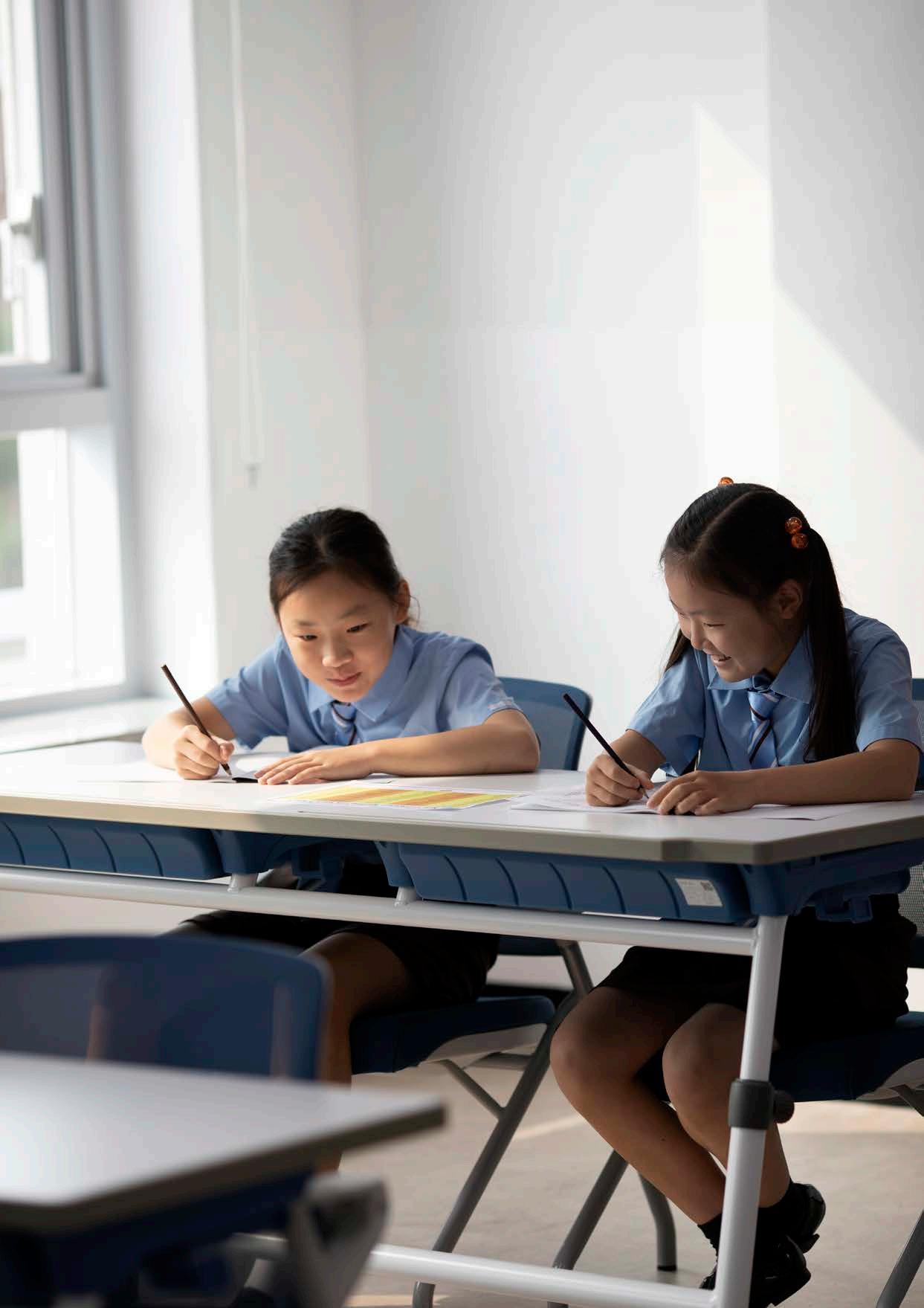
Children may bring a healthy snack to school to enjoy during morning break and before CCAs begin. Students must not have the following food items:
- Chocolate
- Sweets & Lollipops
- Crisps & Biscuits
- Drinks other than water
Vegetables and fruits are encouraged as snacks.
The Junior School places great emphasis on this time of day for students. It is a time when they socialise and also take in the nutrition required to learn and develop.
All students have lunch between 12.40 and 13.35. All school meals are provided by an external catering company, Quadra.
Packed Lunch
Students who bring a packed lunch from home will eat in the Dining Hall at the same time as those having school lunch.
Years 4 - 6 start Br yant in the first term. In order to allow them a period of transition, Year 3 join the programme in the second season.
Years 3 - 6
9.00 Bryant starts / 12.00 Home time
To ensure appropriate supervision at all times of the school day, we ask that children arrive at school no earlier than 7.50. There will be no supervision until that time. Children will enter the school buildings from 8.00. Parents will not be allowed into the playground in the mornings, all children will be met by NLCS staff.
When the school day ends, children from Year 3 and above may walk home by themselves. Children from Reception to Year 2 must be collected by a named adult or older sibling.
Should another adult be collecting your child at the end of the day, please let the Junior S chool O ffice know as s oon as possible, ideally before 12.00 s o that the message c an get to the r ight teachers. Members of s taff will not release children to other adults unless they have been notified by the office staff.
Once collected, students and parents are asked to leave the school campus straight away, rather than waiting on the playground. This is to ensure that we are aware of who is on site, in the c ase of a fire alarm, and s o that s chool property is protected. When students have left the school site, their safety and welfare becomes the responsibility of their parents.
Main Entrance Opening Times
Monday - Thursday 07.00 -08.30 and 15.00 - 18.00
Friday 07.00 - 08.30 and 15.00 - 17.00
Arrival 07.50 - 08.25
Departure 14.50 - 16.35
NLCS Jeju operates a daily bus service for those students attending the school. Our bus routes are designed to serve as many of our students as possible, whilst keeping journey times to under one hour. Buses operate from Jeju City, Seogwipo and Halim and arrive at school no later than 8:00. The y depart at different times daily according to the CCA programmes and school finish time. Parents who are interested in using this service should contact the Junior School Office.
Our main priority is the student’s welfare when travelling on any of our buses. We also ensure that the ser vice we offer is run efficiently, cost effectively and of an excellent standard. In support of this, our Bus Coordinator ensures that all of our buses regularly undergo full safety checks, are cleaned daily and are maintained to a high standard that ensures a comfortable environment for the students. The school buses are fully insured and the school carries a maximum insurance policy for each bus rider In addition to the driver, buses have a Bus Monitor on board. Whilst we are not able to offer a door-to-door ser vice, we will always ensure that students are dropped off and picked up at a safe point in each residential area on the scheduled route.
A student who no longer requires the school bus ser vice must send written notification of an Application for Refund, 7 days in advance, to the Junior School Office.
If a genuine and unplanned need arises whereby your child needs to leave school earlier than the end of the school day, you should call or email the Junior School Office on +82 64 793 8601 or juniorschool@nlcsjeju.kr. Your message will be forwarded onto the relevant teachers (including CCA staff) to ensure your child is ready to meet you to leave school at the agreed time. You will need to collect your child from the Junior School Office and sign them out Any child leaving school early, must do so with a parent or another adult nominated in writing by the parent. This includes children who usually walk home alone. This is to ensure your child’s safety.
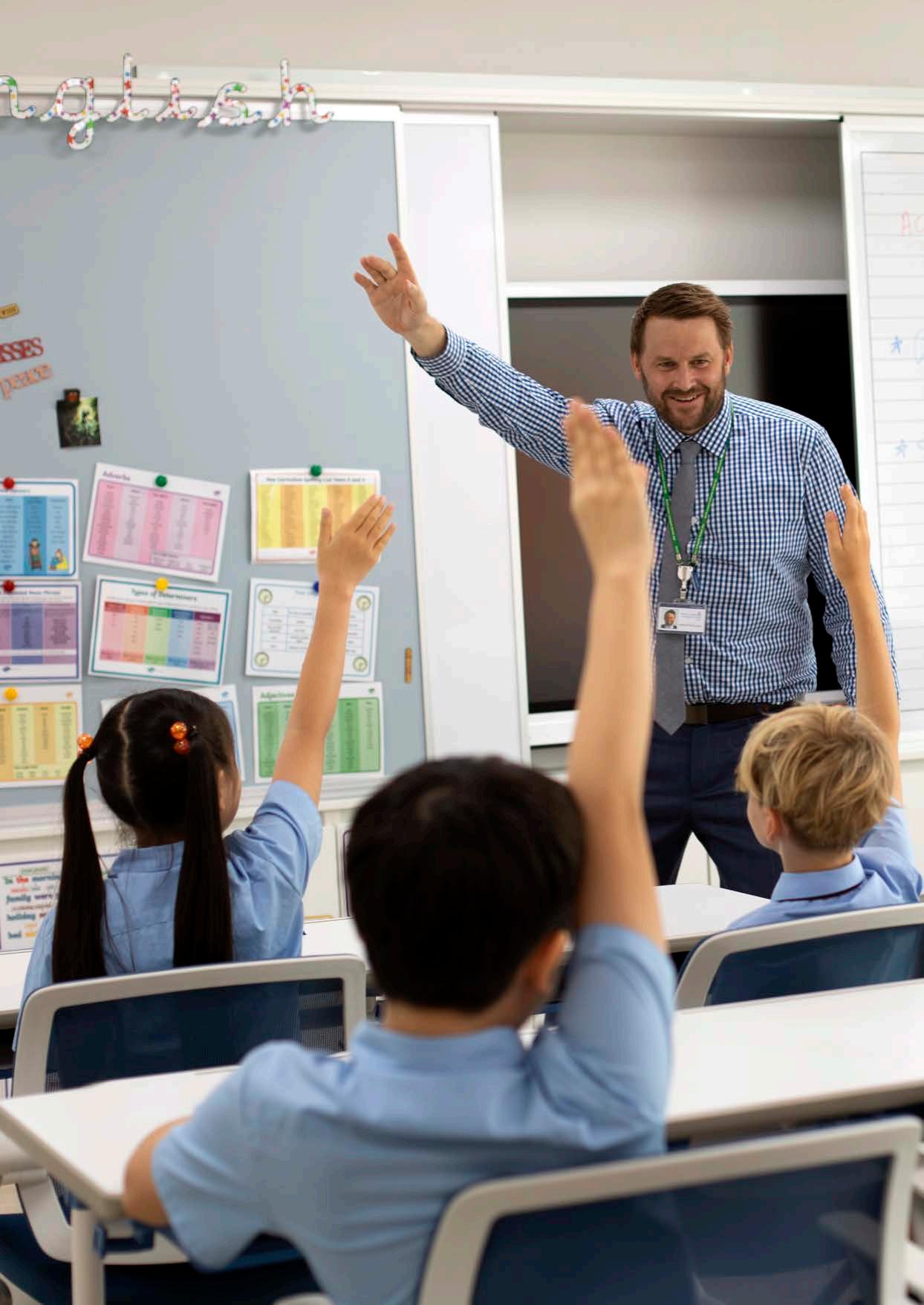
At all times, the curriculum at NLCS Jeju should seek to challenge, enthuse and interest our students. We believe that the curriculum subjects have the power to fascinate young people. Lesson content should be up to date, based on the latest discoveries and understanding within each field. The stories behind the knowledge should be explored and subjects brought to life, that capture a student’s imagination. We aim to develop students who have a passion for the subjects that they study and are motivated to learn through this passion.
The First School comprises our Reception, Year 1 and Year 2 classes.
In Reception, our curriculum is designed to give our children the very best introduction to learning. We know that if the foundations for learning are embedded from this early age, children will flourish as the y move through the school. Our teachers understand that young children learn most effectively through the medium of play and our learning environments offer children the opportunities to discover interests and talents as well as equip them to become life-long learners. Our curriculum is modelled on the Early Years Foundation Stage (EYFS) and is organised into seven interconnected areas of learning and development:
• Personal, Social and Emotional Development
We provide children with experiences and support which help them to interact effectively and develop positive attitudes to themselves and others.
• Communication and Language
Our classrooms are rich in language and support children to develop their competence in communicating, speaking and listening.
• Physical Development
We encourage the physical development of our children through the provision of opportunities for them to be active and to improve their coordination and movement. Our specialist PE and swimming teachers teach children an understanding of the importance of physical activity and making healthy lifestyle choices.
• Literacy
Children’s learning and competence in beginning to read and write is constantly supported and extended. We follow a systematic phonics programme using Read Write Inc. In our English lessons, we use ‘Talk for Writing’ a teaching and learning approach that improves writing ability by giving children an understanding of the structure and elements of written language.
• Mathematics
We develop children’s understanding of Maths in a broad range of contexts in which they can explore, enjoy, learn, practise and talk about their developing understanding.
We support children in helping them to make sense of the world by offering opportunities for them to use a range of tools safely; encounter creatures, people, plants and objects in their natural environments; undertake practical experiments and work with a range of materials.
We promote creativity by encouraging and supporting children’s curiosity, exploration and play. Our children are
given opportunities to explore and share their thoughts, ideas and feelings, for example, through a variety of art, music, movement, dance, imaginative and role-play activities, design and technology.
In Years 1 and 2, there is a more structured school day and the introduction of more subjects, including those taught by specialist teachers. Our teaching and learning approaches are based on those of NLCS UK and guided by the National Curriculum for England with additional enhancements to meet the specific needs of our children. Most lessons are taught by the classroom teacher but we introduce more subjects, such as computer science, taught by specialist teachers. We teach many subjects through inspiring topics that reflect the interests of our children. This helps engage children in their learning and encourages them to make connections between different disciplines. Our balance of academic, creative and physical activities ensures that the curriculum develops the whole child.
Subject
Art
Computer Science
Drama
English
Humanities
Korean/Mandarin First Language
Korean/Mandarin Social Studies
Mathematics
Music
Personal, Social, Health and Economics (P.S.H.E.) Education
Phonics
Physical Education (P.E.) and Dance
Science
Swimming
The Lower School comprises our Year 3, Year 4, Year 5, and Year 6 classes and the curriculum is based on that of NLCS UK. In Years 3 and 4, most lessons are taught by the classroom teacher with some classes taught by specialist teachers. Topics such as ‘Rainforests’ and ‘Ancient Rome’ remain important hooks to inspire children’s learning and to encourage creative and critical thinking. We also begin teaching Mandarin as an additional language to children in Year 3. Mandarin native speakers learn Korean as an additional language.
Subject
Art
Computer Science
Drama
English
Humanities
Korean/Mandarin First Language
Korean Second Language
Korean/Mandarin Social Studies
Mandarin Foreign Language
Mathematics
Music
Personal, Social, Health and Economics (P.S.H.E.) Education
Physical Education (P.E.) and Dance
Science
Swimming
In Years 5 and 6, our curriculum is taught by subject specialist teachers. Every child is part of a small group of 10 to 12 children called a tutor group. The tutor group meets every morning under the supervision and guidance of a Junior School teacher called a tutor. The tutor supports the children with organisation, timeliness, homework, friendships and behaviour.
Junior School academic departments write their own programmes of study, based on the teaching approaches of NLCS UK and the National Curriculum. The aim is to provide students with the knowledge base and skills required for the next stage of their learning, while developing scholarship and enthusing them with a love of lifelong learning in each subject.
Subject
Art
Computer Science
Drama
English
Humanities
Korean/Mandarin First Language
Korean Second Language
Korean/Mandarin Social Studies
Languages - French/Latin/Mandarin/Spanish
Mathematics
Music
Personal, Social, Health and Economics (P.S.H.E.) Education
Physical Education (P.E.) and Dance Science
Swimming
Each academic subject is led by a Head of Department. They are responsible for both the management of the subject in terms of curriculum and academic monitoring and also for its leadership across this school. This includes raising the profile through e vents, enrichment weeks, competitions, festivals, CCAs, and Bryants. They are available to answer any questions you may have regarding the subject and how it is taught at NLCS Jeju.
Detailed curriculum information is shared in Curriculum guides for each year group, which will be made available digitally at the start of the academic year.
The aims and objectives of homework are:
- To enable students to make maximum progress in their academic and social development.
- To help students develop the skills of an independent learner.
- To promote cooperation between home and school in supporting each child’s learning.
- To enable all aspects of the curriculum to be covered in sufficient depth.
- To consolidate and reinforce the learning done in school, and to allow students to practise skills taught in lessons.
- To help students develop good work habits for the future.
In the First School, students are given books to take home and read with their parents. Guidance is given to parents on achieving the maximum benefit from this time spent reading with their child. Year 1 and 2 s tudents are also asked to learn spellings or practise handwriting as part of their homework. A small amount of First Language homework is given to students in Year 1 and 2.
WEEKLY HOMEWORK ALLOCATION IN YEARS 3 AND 4
Timings may differ occasionally, depending on the topics being studied. In addition to the home work identified below, it is also expected that students read widely, undertake the learning of spellings and pratice their instrument. It is expected that homework will be handed in the next day unless otherwise specified.
First Language Homework
Year Group Tasks Set
Year 3
Year 4
Writing practice and topics (30 mins)
Writing practice and topics (30mins)
WEEKLY HOMEWORK ALLOCATION IN YEARS 5 AND 6
Students in Years 5 and 6 should expect to receive approximately one hour of homework per evening. Your child will receive a homework timetable at the beginning of the year so that they are aware which subject will set homework on a particular evening.
In addition, projects are set for children in Year 5 and 6. These have a long lead date and enable children to immerse themselves in the skills needed for research and presentation.
NLCS Jeju Junior School offers an immersive English language environment. English is our ‘Language of Learning’ and our ‘Language of Play’ We expect that all children (as soon as their command of the English language is sufficient) communicate in English at all times, with the exception of First Language lessons, when communicating with parents or visitors, and in emergencies.
Students are rewarded for their use of English, in line with the school’s Behaviour Policy. If students choose not to adhere
to the school’s Use of English policy, each instance will be recorded by the class teacher or tutor. A letter informing you of the incident will be sent home that day and the student will attend a Reflection CCA that week If there are repeated incidents, parents will be invited to meet with the Junior School Deputy Head or Head of First School.
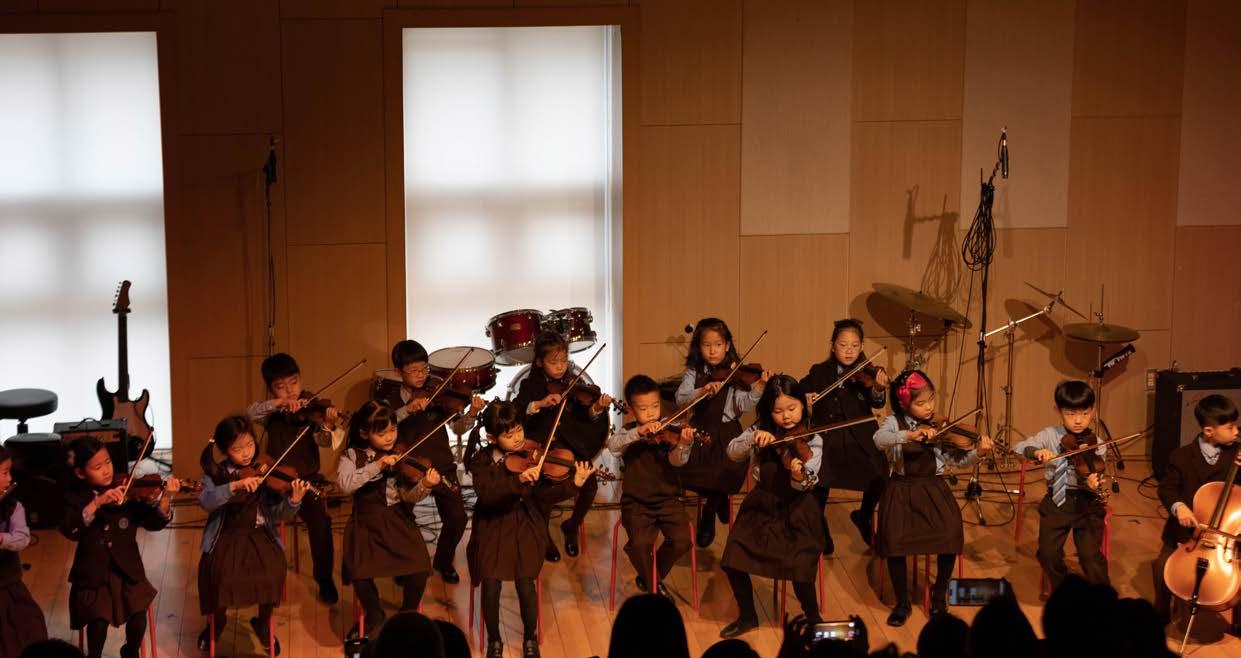
We strive for all children to achieve at the highest level and we carefully plan teaching and learning around the needs and interests of each child. Effective assessment methods are an important means of ensuring that e very child makes exceptional progress. Teachers employ a variety of assessment methods to help them build a comprehensive view of each student’s performance and progress. Assessment may take place through observation, questioning, self-assessment, peer assessment , a test, or a student product – an essay, a project, a report, a poster, a film, a presentation. Children have a variety of ways in which they can demonstrate their learning and understanding.
Each year parents receive two reports containing feedback on your child’s academic and pastoral achievements. These reports contain attainment, and attitude to learning grades for each subject and a comment from each subject teacher that focuses on academic progress and areas for improvement. These reports are accompanied by tutor comments that discuss the overall de velopment of your child and their engagement with all the opportunities the school offers. In addition, boarders will have a comment from their housemaster. Reports are accessible through the iSAMS parent portal and a printed copy will be sent home.
Parent Consultations are events when parents are invited to meet with each of their child’s subject teachers, tutor, class teachers and housemaster. Interpreters will be available to assist you, should you require it.
The purpose of Parent Consultation is to build the partnership between home and school for the benefit of your child. We aim to:
• Give clear information about our assessment of each child’s pastoral and academic attainment and the next steps in their learning.
• Give parents a rounded picture of how well their child is settling into school life socially and emotionally.
• Answer parents’ questions about any aspect of their child’s education at NLCS Jeju.
If, on the day, you feel you need longer to talk to a particular teacher, then do let the teacher know and the y will tr y to find a suitable time to continue the discussion. Due to the nature of our school, there will be occasions when some teachers will not be able to meet all parents. If you find it difficult to get an appointment time with a particular teacher, please contact us and we will endeavour to find a suitable time.
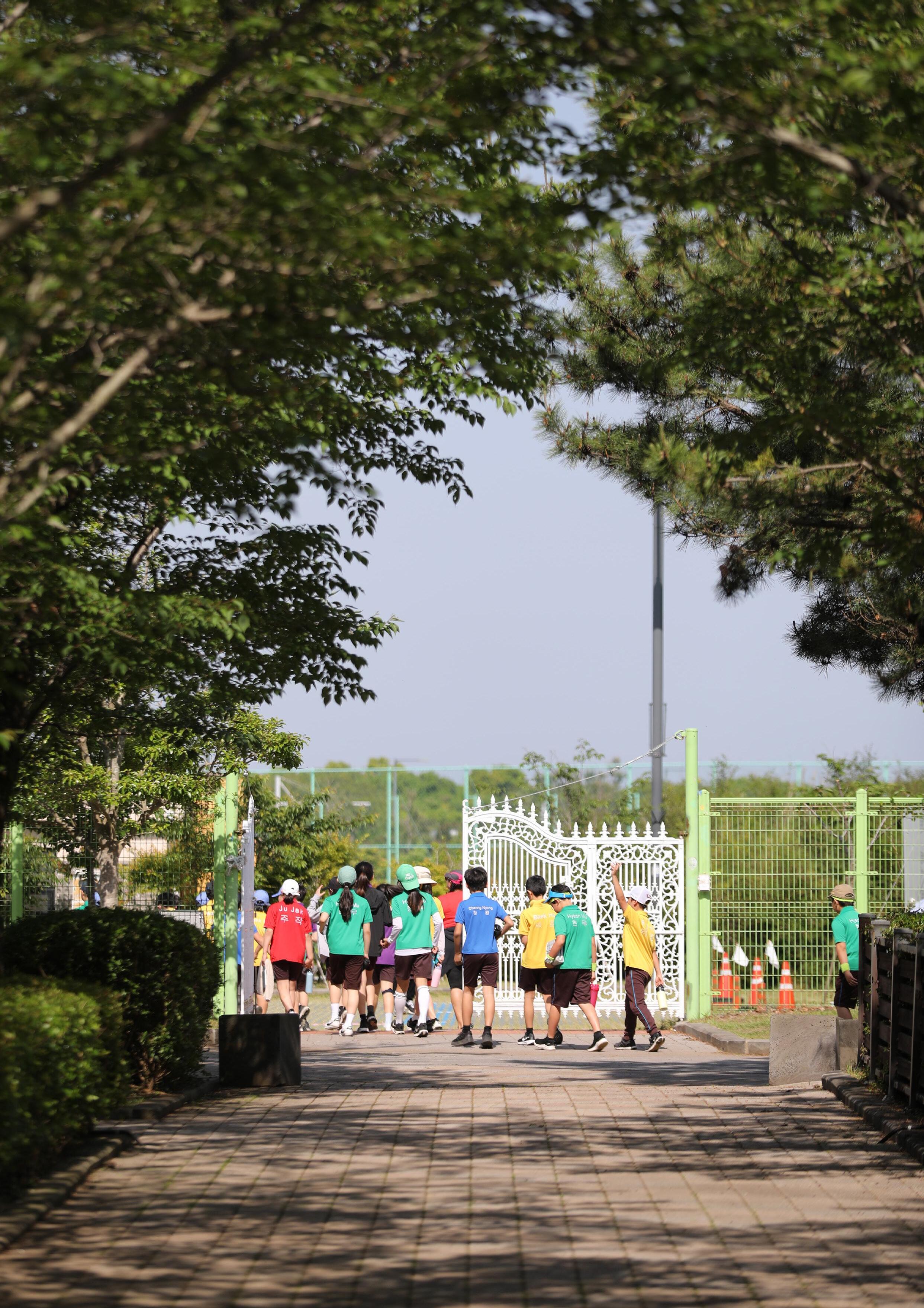
At NLCS Jeju Junior School, we belie ve that significant learning can only take place when strong, positive relationships exist between staff, children and parents. We belie ve that each child must feel happy and safe first so that the y can reach their full potential and achie ve. Pastoral care is at the heart of all we do, both in school and in the support we offer families beyond the school day Your child’s teacher or tutor should be their first point of contact for all pastoral matters - and yours too. Trusting and meaningful relationships between staff, parents and students are essential so that any issue, big or small, happy or sad, can be responded to quickly, appropriately and with the child’s best interests at heart.
The Junior School’s Behaviour Policy puts into effect the school’s principles for promoting positive behaviour for learning with the aim of enabling all students to achieve their potential. It sets out the whole school approach to behaviour management in order to achieve a positive whole school-learning ethos. We seek at all times to uphold NLCS Jeju’s core values
All of our students have the right to -
- Learn.
- Be treated with fairly with respect, dignity and kindness.
- Feel safe, secure and happy.
- Have freedom of independent thought and expression.
All of our students have a responsibility to -
- Have input into their learning and aim to reach their full potential.
- Accept responsibility for their actions and property.
- Care and respect themselves, others and the school environment.
These aims reflect NLCS Jeju Junior School’s commitment to de veloping confident and competent students who are fully prepared to enter the Senior School with the appropriate social, emotional and academic skills. We have exceptionally high expectations of all our students, teachers and other members of our school community. We recognise that some students may have behavioural difficulties or individual learning needs and we strive to address these needs through various strategies to enable the student to modify their behaviour to enable learning to take place.
All class teachers set their expectations for students to -
• Be positive, focus on their learning and do their best.
• Come to school prepared with the correct equipment, including any other specialist equipment as required.
• Be reliable and arrive to school and lessons on time.
• Be dressed properly in full, smart school uniform .
• Move around the school sensibly to create a safe environment.
• Behave well and be prepared to take responsibility for their own actions.
• Make a positive contribution to the school community.
• Ensure the school community is safe and free from bullying, harassment or discrimination of any kind.
• Treat other people as they would like to be treated themselves.
• Work collaboratively with other students and ensure they contribute and listen to the ideas and opinions of oth-
ers.
• Ensure that home learning is both recorded and submitted on time.
• Be polite and respectful at all times.
• Follow the instructions from all members of the school staff regardless of their role.
• Use our Learning habits in and out of the classroom
NLCS Jeju Junior School has high expectations of behaviour both on and off-site and students are expected to uphold and maintain these standards at all times. This applies to students in public areas outside of school hours and/or supervision.
A school ethos of positive behaviour for learning, Encouragement and praise is central to the promotion of high standards of behaviour; rewards are an integral means of achieving this.
NLCS Jeju Junior School uses “Pluses” as a reward system. The system is used to support and embed the school’s ethos and, in particular, to promote respect for everyone, contribution to our community and House system, individual endeavour and social responsibility.
In order to ensure that rewards are meaningful for students, all rewards allocated to students carry a number of points which contribute to individual and group competition. A child’s pluses go to their House, with every 10 pluses earning a token for their house tube. There is a keen sense of competition for the House Shield that is awarded at the end of each academic year.
Pluses should be awarded based on an individual’s effort and achie vements rather than a comparison to other children. A plus can be awarded for a range of reasons, such as -
∙ Excellent effort for a particular piece of work.
Excellent achievement for a particular piece of work.
Displaying excellent behaviour for learning.
Excellent peer evaluation.
Wider contribution to the school community.
∙ Caring for others and the environment.
Using our Learning Habits
Classes in Years 5 and 6 collect class Plus Points as a class as well as individual Pluses. These can be gained for punctuality, having the right equipment, remembering homework, using our learning habits and productive lessons. Each week, the winning class in Year 5 and 6 will receive a small whole class reward celebrating their success. At the end of each term, the class with the most plus points will be rewarded with a special prize determined by the Head of Year 5 and 6.
The Head of Junior School’s Commendation is awarded to exceptional students who are nominated by staff for their outstanding contribution to the NLCS Jeju community. This can be for academic achievement or success beyond the classroom and the use of our Learning habits. Students who are awarded a Head of Junior School’s Commendation will receive a badge and a certificate in our termly celebration assembly.
Each week, each class teacher will select a child from their class to be the Class Captain (Reception to Year 4). This child will receive a badge for the week as well as a certificate and their photo will be displayed on our superstars board. The Class Captain can be selected for a range of reasons such as being a good friend, excellent effort, excellent achie vement, improvements in behaviour and attitude and using our Learning Habits.
Each subject specialist has methods for celebrating specific successes within its subject Specialists acknowledge the specific needs and requirements to be successful in their curriculum area and find appropriate ways to celebrate these.
The NLCS Jeju Annual Prize Giving will be held at the end of the Summer Term and will focus on recognising what the school considers to be the most special achie vements based on our values. Parents, staff and Governors will be invited to attend this prestigious occasion (subject to COVID guidelines and regulations). Each class will have 3 awards, based on our Learning Habits. -
The Outstanding Resilience Award
For a child that has demonstrated a consistently excellent attitude towards learning. Even when learning is challenging, this child demonstrates perseverance and resilience. The effort and commitment the y show to academic excellence is outstanding.
The Respectfulness and Empathy Award
For a child that is an ‘always child’, a role model within your class. Their manners, maturity and politeness are exemplary. They are kind, caring and continually make the right choice.
The Outstanding Courage Award
For a child who always puts in that little bit extra in all aspects of school life. They aren’t afraid of a challenge, they are determined, enthusiastic and outgoing. The y partake in activities that might not be necessarily their first choice; the y put others first and try themselves out.
There are additional specific awards given to Year 6 during their Leavers Assembly before moving to Year 7.
The Behaviour for Learning Policy will support NLCS Jeju Junior School in achieving excellent student behaviour and discipline, both in school and out of school and in the wider community. The school requires its students toBehave in a way which demonstrates cooperation and consideration for other students in terms of their learning and builds positive relationships with other students within classrooms, school and the community.
∙ Behave in a way which demonstrates courtesy towards teachers, learning assistants and all other adults and students.

In the final term of the academic year, preparing our students to be ready for their next year group becomes a real focus. Move Up Day takes place in the last few weeks of the Summer Term. It is an exciting opportunity for children to meet their new classmates and teacher, spending time in their new classrooms and setting expectations for the year ahead.
Year 6 students sample ‘Inspire’ lessons in this term, visiting the Senior School and meeting Senior School teachers in the process. Additionally, teachers, tutors and the Junior School Leadership Team spend time preparing them for the expectations of Year 7. Consequently, by the end of the Junior School, our students have the confidence to ‘hit the ground running’ when they embark upon their Senior School careers.
As students move through the school we very much hope that their progress is linked to a greater understanding of the values and needs within the community. There is a range of positions that provide opportunities for our students to develop leadership and social responsibility.
The Little Eight are a group of Year 6 s tudents who apply and are elected by s taff and s tudents to lead and represent the school in a range of formal and informal events.
This group sits at the heart of the school’s pastoral structure as they represent the interface between the student voice and the management of the school. Students nominate themselves to represent their Year group and are elected by their peers. The School Council discuss a variety of topics, which include student concerns, school events and future changes. In Year 3 to Year 6 this post will last for the entire year. In Year 2, this role is introduced after the February half term.
Year 6 students will be elected House Captains by the Heads of Houses at the start of the academic year. The House Captains will lead the House during assemblies and will also support events.
This ensures that each new student has a named student to support his or her induction into the school. This relationship enables each student to be able to seek advice and guidance from their buddy and seeks to avoid disorientation and isolation in the first few weeks after joining the school. Buddies are allocated from within a student’s class or tutor group.
A range of Ambassador roles exist for our Year 5 and 6 students, such as the Eco Ambassador, Technology Ambassador, Sport, Librarian Ambassador, Student Welfare, Global Awareness and Music Ambassador. Students write a letter of application to the leading member of staff and work with them over the course of the year, de veloping the school in these specific areas.
We expect our older students to take an interest in the welfare of younger students within their House as well as by being positive role models and building positive, supportive relationships.
Our School is committed to safeguarding and promoting the welfare of children and young people. The School expects all teaching staff, non-teaching staff, volunteers, students and visitors to our school to share and uphold this commitment. If a child cannot feel safe they cannot learn to their full potential.l.
The school endeavours to maintain the highest standards of child protection practices and works with external agencies such as the Seogwipo / Jeju Child Protection Agency and the police.
Should parents have any child protection concerns they should report them immediately to the school’s Designated Safeguarding Lead (DSL) Mr Henr y Wiggins; the Deputy Designated Safeguarding Lead (DDSL) Mr Jeremy Freeman or the Designated Safeguarding Officer (DSO) Mr Richard Washington.
As parents you can help protect the students by following these simple guidelines with children, other than your own:
Do not touch a child or invade their personal space.
∙ Do not take photographs of children on site at any time.
∙ Do not give personal information such as your full name, phone number or email address to a student and in return do not accept personal information from a student.
Do not use student toilets and changing rooms – please use designated visitor or staff toilets and changing rooms. Do not enter a Boarding Home unless accompanied by an HM or AHM.
∙ Do not attempt to resolve instances of physical or verbal abuse from a student by yourself, instead report it immediately to a member of NLCS Jeju staff.
∙ Do sign in at the security gate on arrival to the school. You will be given a visitor’s pass if you do not have your parent pass.
Do sign out when you leave and hand the visitors pass back to the guards if you have one.
Do ask questions of our staff if you need any help.
Do report any concerns you have about the safety or students to one of our Safeguarding Focal Points (these are on the posters around the school.)
∙ Do be aware that your physical actions or verbal interactions with students may be misconstrued by students and taken
as inappropriate or offensive, even if this was not your intention.
Do be aware of your actions towards NLCS students off site. Any verbal or physical contact with students off site may also be taken as inappropriate by the student and lead to your interaction being misinterpreted.
∙ Do be aware our school is monitored by CCTV at all times.
Access to the school site is controlled by the security positioned at the school gates. Visitors must report to security on arrival who will issue them with a visitor’s pass that needs to be worn and be visible. During normal pick up and drop off hours, parents do not need to sign in. Outside these times, all parental access will be treated as visitor access to the school and is by appointment only.
All members of the NLCS Jeju community are valued as individuals and have the right to feel safe and happy within the school environment. NLCS Jeju has an Anti-Bullying policy which is fully committed to both preventing bullying in the first place and also to robust and effective actions when it is discovered bullying has occurred. A full copy of this policy is available to parents on the website or on request to the school.
NLCS Jeju maintains a raised awareness amongst staff and students of any vulnerable individual who is found to have low self-esteem and who is excluded or humiliated by others. Further, the school promotes an ethos which deplores anyone being left out , being unsupported or being humiliated. NLCS Jeju will actively involve any of all of the following parties: the student of concern (both victim and those perpetrating the bullying), the School Counsellor, the AVP - Pastoral care, the relevant tutors or teachers, the student’s own peer group and if necessary the Head of Junior School.
Bullying can be verbal, visual, or physical. Commonly it can also include exclusion from friendship groups and may take place on the internet or social media (in or out of school time). This called cyber-bullying and is specifically referred to in a sub-section below.
We ask parents to play a positive role in helping identify if their child is the victim of bullying. We also ask that parents take a responsible approach which is aligned to the school’s anti-bullying policy. In particular, we specifically request that parents do not contact other parents directly but channel their concerns and or other communications through the school and work with the school to a solution. Parents should actively remind children that they have a right to feel safe and valued and the school can and will (with the student consent) deal with any difficult situation.
Those students who are found to be perpetrating bullying will be dealt with firmly but also be given a chance to understand the harm their actions are causing and given a chance to reform.
Cyber-bullying refers to inappropriate text messaging or emailing and inappropriate use of social network sites, as well as sending offensive imaging by phone, internet or email. Cyber-bullying may involve transferring and/or sharing of personal, abusive, nasty, threatening, intimidating, harassing, embarrassing, inappropriate or humiliating messages and/ or images.
Parents should remind their child to use the internet carefully and responsibly, in particular not sharing passwords, not retaliating, but reporting issues. They should be reminded to think carefully before sending any message that may have a negative connotation. As a parent please be alert to your child being upset after using the internet or mobile phone. This might involve subtle comments or changes in relationships with friends.
The specific procedures related to cyber-bullying follow a similar philosophy to the Anti-Bullying Policy but are tailored
appropriately. Again, a full copy is available for parents.
North London Collegiate School Jeju condemns unequivocally discrimination and inequality in all its forms. We recognise that NLCS London was founded on the principles of respect and compassion, service to others, and active, positive participation in society and the wider world and we embrace and emulate these values.
Racism is not tolerated at NLCS Jeju and will be dealt with as a serious misdemeanor in line with the Anti-Racism Policy (PC014).
The Junior School Specialist Support Department, Junior School Counsellors, AED Department and AVP Pastoral will meet on a weekly basis. Students identified as demonstrating any barriers to progress and referred by class teacher, tutor or subject specialist, will be discussed in depth. Student progress will regularly be reviewed in light of assessment data; teacher input and all other available information. Parents will be informed if their child requires additional support and they will receive a copy of their child’s Specialist Support Plan and regularly updated on progress.
The school endeavours to maintain a high level of pastoral care and therefore practices reflect our ethos:
1. Specialist Support needs are met within the school where possible.
2. The school works closely with parents and outside agencies to give each child the best chance of success.
3. The Specialist Support provision is delivered on a needs-led basis and is aimed at removing barriers to learning.
4. This provision takes place in the school day and will sometimes take precedence over lessons.
At NLCS Jeju, we have an Emotional Guidance Counsellor who works alongside our Pastoral team to monitor the welfare of the children. At times she works with groups of children, families or individual children to help them with specific issues. This may be at the suggestion of the school or may be after we have been approached by a child or a parent. We offer Korean and English speaking counselling services.
Learning in English when it is an additional language can sometimes be difficult . As part of the robust support put in place at NLCS Jeju, English language specialists work with students to provide high level and individually targeted support to ensure all children make their expected progress towards the required le vels of fluency in English. With a focus on in-class support , children can continue to benefit from an exceptional British education in their own classrooms. Some support will also take place in out-of-class sessions where students engage with the same material as the main class but in a smaller group or individually in order to accelerate their English language proficiency. Parents will be advised if any additional English language support is needed for their child.
12 BEYOND THE CURRICULUM
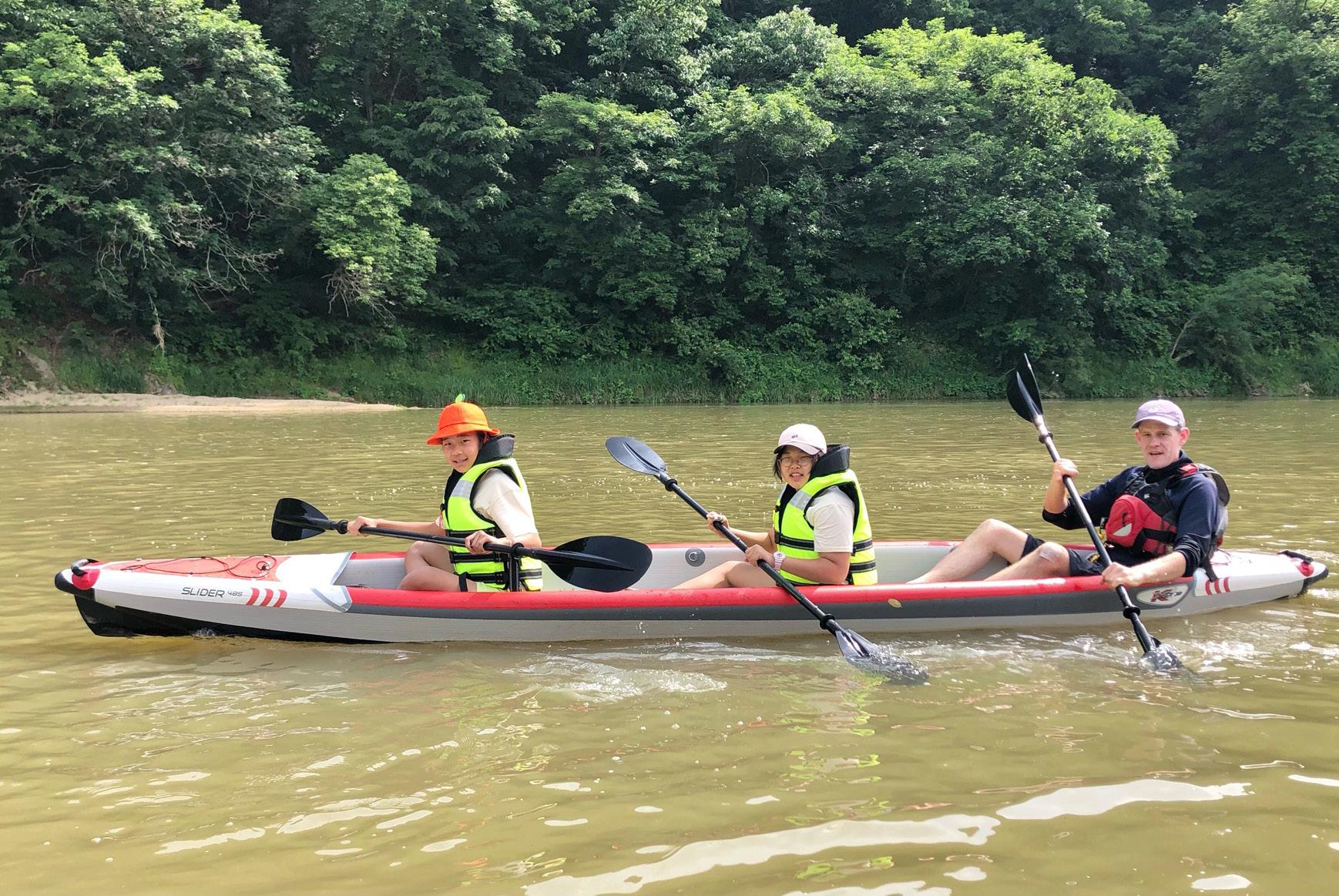
At NLCS Jeju, we understand that personal development doesn’t come from the classroom alone - it’s what students can do be yond the classroom that defines them as a person. That’s why we offer an exceptional co-curricular programme with a wealth of activities to choose from every week. We encourage students to try something new and take opportunities to grasp new passions with both hands.
As well as helping them grow and develop as future leaders, these additional skills, passions and interests are sought by the world’s best universities.
Our core philosophy is one of excellence and opportunity: giving students access to a wide base of activities and ensuring that those who find a passion can excel.
In the Junior School, CCAs are created based on students’ interests and with the input of the CCA coordinator, Heads of Department and class teachers, ensuring a mix of activities. Gardening, football, orchestra, choir, calligraphy, board games, science clubs and drama have all featured in the CCA programme previously.
The aim of these activities is for students to relax at the end of a busy academic day and enjoy developing a passion, skill or interest over a sustained period of time. They should, therefore, attend every week and enjoy the routine. It is also an appropriate time for students to complement their academic studies as required e.g. extension of EAL through Book Club or furthering a passion for history by watching historical films. It is not a time for additional academic curriculum provision.
It is compulsory for every student in Years 5 and 6 to attend a co-curricular activity every evening in the allotted time slot. From Year 1 to Year 4, there are activities on a Tuesday and Thursday.
The Br yant Programme is a unique and extensive programme of different co-curricular activities that the school provides on a Saturday morning, which is compulsory for all students in Year 3 – 6. (Year 3 students start Bryant in Term 2)
All activities run from 09.00 to 12.00. These activities vary from forest schools to knitting and the scheme is so broad that we are confident there is something for e veryone. Students will select a number of activities and then be allocated three Bryant Activities throughout the year based on their preference.
Students are expected to challenge themselves to try things they have not done before, as well as to meet new people and go to new places. A key driver is that students learn from their experiences and become more reflective individuals.
The Bryant Programme also allows students to focus on a particular activity in order to develop their passion and expertise in that activity.
There is a charge for some activities and students should discuss this with their parents before making their choices. Parents can now pre-approve all chargeable activities. Invoices for fee-paying Bryants are sent during each Bryant block.
Each student is a member of one of five Houses.
• Baek Ho
• Cheong Nyong
• JuJak
• Hyeon Mu
• Haetae
Students participate in a variety of sporting, academic, musical and fun activities as members of their House. House events take place on Friday afternoons and during one off e vent times as per the calendar. Participation in these e vents is part of the year long competition between Houses.
Students in Year 6 have the opportunity to nominate themselves to become House captains. They make a formal speech to their House and are elected by students and staff.
On Fridays, children are requested to wear their regular uniform with their House shirt. They will begin Fridays with a House meeting and sit together in Houses for lunch.
Your child’s health and safety is our first priority and, in light of the ongoing COVID-19 pandemic, we have a strict set of protocols for running offsite trips and tours. Ne vertheless, when it is safe to do so, we plan local learning adventures that enhance our children’s understanding of topics taught throughout the year. Moreover, we are always looking for alternative ways to expose our students to amazing experiences that enrich our curriculum. This includes welcoming expert visitors to run enrichment workshops in school or to join us on video conferences from around the world.
The Junior School has a set of ‘Learning Habits’ which we as a community believe support and enhance our subject rich curriculum. We aim to de velop an outward looking, thoughtful, reflective and completely modern way of thinking, underpinned by positive behaviours and traditional values. Thus enabling NLCS Jeju Junior School students to be outstandingly equipped as children and students through Junior School, Senior School, University and beyond.
As NLCS Jeju Junior School students, we will be:
Creative
We actively promote creativity in our students, encouraging them to try new things, not be afraid of challenges and to think outside the box.
We encourage critical and creative thinking skills to develop reasoned thoughts and viewpoints.
Courageous
We promote risk taking within and outside of the classroom, the willingness to try things out and push ourselves to greater levels.
Open-Minded
We appreciate our own culture and history as well as the values and traditions of others. We understand there are different points of view and we grow from varied experiences.
Resilient
Children de velop as unique individuals; this requires determination and endeavour combined with fun and enjoyment Resilience is a key value to a successful life and high achievement.
Empathetic
NLCS Jeju students should appreciate others’ efforts and achie vements. In the classroom, the art and music departments, within sport and during House competitions and during assemblies. Empathy towards others is a vital component of positive behaviour.
Respectful
We act with integrity and honesty in all we do. We take responsibility for our actions and their consequences and have respect for others at all times.
The Junior Boarding provision aims to provide a ‘home from home’ for our junior boarders reside within two specifically selected Senior Boarding Homes. It is a wonderful and exciting opportunity for children from Year 4 to 6 to experience the full life of the school; access the facilities; take part in an extensive programme of enrichment activities, and receive the full spectrum of pastoral care for which NLCS is known across the world. Junior Boarding is entering its third year and has the continued experience of many junior boarding staff. This ensures that the Junior boarding students get the best of both worlds.
Children who choose boarding will complete a normal school day from Monday to Friday, followed by CCA activities. At weekends the children will take part in the Bryant activity programme on Saturday mornings, followed by further activities, trips, free time and supervised study during the rest of the weekend. One highlight of the weekend is the incredible ‘Sunday Brunch’ which all children look forward to.
This year we will be continuing the enhanced enrichment and study support as part of the NLCS Jeju Boarding Strategy. From Monday to Thursday, Junior School teaching staff will be available in the e vening to support the students with their studies and their homework, particularly spoken and written English.
There is a flexible boarding option for children in Junior Boarding. More information can be obtaining from a member of the Boarding leadership team.
The NLCS Jeju Junior Boarding model is a fantastic opportunity for our Junior students to become used to the boarding way of life. Alternatively it will suit families who wish to remain based on the mainland but with the knowledge their child is safe and happy living with new friends.
Boarding staff are always available to answer parent enquiries or to arrange trial boarding sessions for children. If you have any questions, please do contact us.
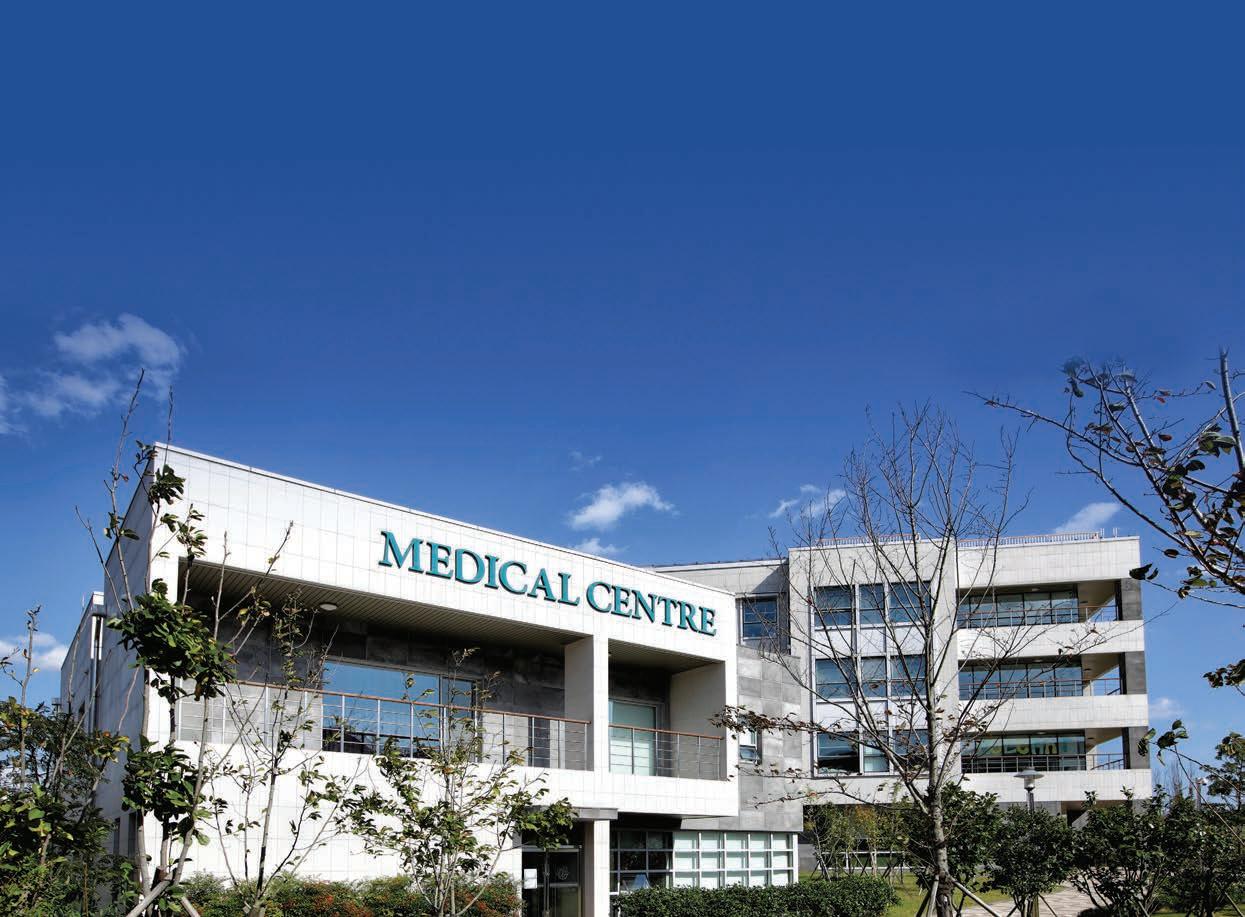
Please always contact the relevant class teacher or tutor, as well as the Medical Centre, to inform them of any changes or developments in the health or medical requirements of your child. This is crucial so all children are protected and supported at all times
There is an ambulance on call 24 hours a day, based in the Global Education City HQ. There are clear procedures for when children are referred to hospital. A member of staff will always accompany them. The Medical Centre will contact you directly if your son or daughter requires emergency medical attention, or if there is a question regarding their regular medication or prescription.
It is imperative that we know in advance of any medication being taken by your child. Upon arrival at the school, all parents whose children are taking prescribed medicine must visit the Medical Centre to hand-over all drugs and a doctor’s note to the medical staff and discuss dosage. No child at NLCS Jeju is permitted to self-medicate.
Students with serious medical conditions are identified at a staff meeting at the beginning of the academic year and a list
is made available for staff of all students with medical problems to enable them to identify those the y teach. Updates are made to the list of longstanding medical issues and notified to staff.
Special medical diet programmes linked to medical conditions such as diabetes can be implemented in liaison with the catering company Quadra Dining Services. Any food allergy should be clearly stated on the Student Information Form which parents submit prior to their child entering the school. Staff are trained in anaphylaxis management by Medical Centre staff and students who carry an epipen are clearly laid out for appropriate staff in case of an emergency.
On entry to the School, Parents/Guardians complete a Student Information/Acceptance Form. This seeks information regarding the student’s Medical History, any current medical issues, vaccinations and permission for selected overthe-counter medications to be administered whilst at school if necessary. Consent for treatment with simple remedies in a first aid or emergency situation is also obtained. All information is held and used in accordance with strict data protection procedures. Medical information is kept for each child in the Medical Centre. Access to this is limited to the relevant staff. It is ver y important that your contact details on our iSAMS database are correct for this purpose. You can amend these details through the iSAMS Parent Portal.
All visits to the Medical Centre are logged. This records the date, time and nature of the condition as well as any treatment resulting. This information may be made available to outside agencies in terms of medication administered or referrals. When ne w conditions, illnesses or any medical problem arises which may affect a student’s ability to access the curriculum, this is communicated to all staff. All illnesses/injuries will be assessed and communication made with home if the nurse feels appropriate.
It is the responsibility of parents to ensure that their child is fully up to date for all immunisations, including travel vaccinations for school trips.
Teaching staff will assume fitness for participation if a student is in school unless the y are incapacitated by physical injury or have a signed doctor’s note, which prohibits taking part. Colds, coughs, and minor ailments will not be accepted as reasons for withdrawal from such lessons.
Parents are expected keep their child off school if the y are unwell. Keeping them at home will help to speed up the recovery and also reduces the risk of infection to the other children.
The effects of the COVID-19 pandemic are still ongoing. We follow guidances and regulations from the KCDC and the PoE on Jeju. The Medical Centre are involved in testing and monitoring and can offer advice on all precautions and requirements.
Particular illnesses warrant a period of time off school, which must be adhered to. A nurse must then give the child the ‘all clear’ before they can return to the classroom. Parents must submit a doctor’s note.
Exclusion Period
Chicken Pox
Conjunctivitis
Diarrhoea, Vomiting & Food Poisoning
Fever
Measles
Mumps
Ringworm
Rubella
6 days from appearance of last spot and all spots have formed a scab
Children may return to school once treatment has begun if diagnosed by a doctor as non infectious or once discharge from eyes has stopped.
48 hours symptom-free
24 hours or more after temperature has returned to normal
5 days minimum from onset of rash
5 days after swelling has appeared
Until commencement of treatment
7 days after onset of rash
If a case of head lice is discovered, all parents will be informed and asked to check their child’s hair to prevent further spreading. The nurse will be happy to check a child’s head on request. The child will remain at home, if advised by the Nurse, until the Nurse is satisfied that the lice have cleared.
When there is an outbreak of an infectious disease, such as influenza, the medical centre, administrative staff and teachers will work together to minimise the spread of the illness. The School will follow advice on procedures and protocols given by the Korean Centres for Disease Control and Prevention.
Junior School students from Reception to Year 4 will be accompanied to the Medical Centre by an adult/member of staff. Year 5 and 6 students are allowed to visit the Medical Centre with a friend having received a permission note from a member of staff.

An NLCS uniform should be worn with pride and is a symbol that students are ready to learn. All students are expected to wear the correct uniform at all times (see section 13.3 for Fridays House uniform). Any deviation from the official uniform will be challenged.


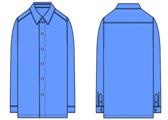
A uniform list is available from the Junior School Office or the Admissions Department. Our official uniform supplier is Skoolooks who can be contacted on 064 724 5948 or 010-3693-0096. (190, Jungang-ro, Jeju)
The date for changing from summer to winter uniform and vice versa will be communicated in the school newsletter.

∙ Shoes should be black leather and should not have heels, nor be trainers (except for PE).
All uniform should be clearly labelled.
Hair accessories should be simple.
Jewellery should not be worn
Parents are asked to fully support these regulations.



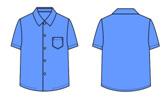



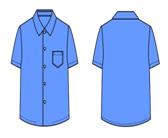
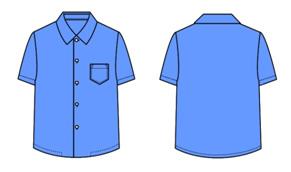

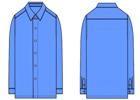

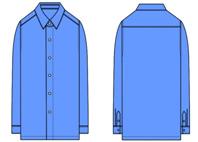










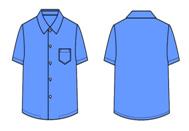







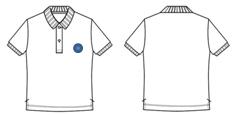
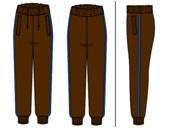








Winter Summer
Top Hat
Bottom long Bottom long Short




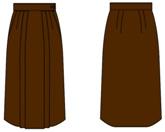
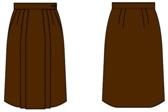


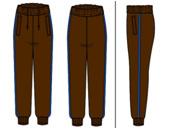
















WINTER UNIFORM
Long Sleeve shirts
Long trousers
Blazer
V-neck sweater or Vest
PE top (long sleeve)
PE trousers (long)
Tie Hat
Reception - Year 6
Reception - Year 6
Reception - Year 6
Reception - Year 6
Reception - Year 6
Reception - Year 6
Reception Optional Year 1 -Year 6 Mandatory
Reception - Year 6
* Vest is optional, only for boys.
SUMMER UNIFORM
Short Sleeve shirts
Short trousers
Reception - Year 6
Reception - Year 6
PE top (short sleeves)
PE shorts
Tie
Hat
* Hoodie will be added as the standard PE top for winter PE Uniform.
WINTER UNIFORM
Tunic one piece
Long sleeve blouse
Skirt
Blazer
Pullover
PE top (long sleeve)
PE trousers (long)
Tie Hat
Reception - Year 2
Reception - Year 6
Year 3 - Year 6
Reception Optional
Year 1 -Year 6 Mandatory
Reception - Year 6
Reception - Year 6
Reception - Year 6
Reception Optional
Year 1 -Year 6 Mandatory
Reception - Year 6
SUMMER UNIFORM
Summer dress
short sleeve blouse
Skirt
Reception - Year 2 (White)
Year 3 - Year 6 (Blue)
Reception - Year 6
Reception Optional
Year 1 -Year 6 Mandatory
Reception - Year 6
Reception - Year 6
Year 3 - Year 6
Year 3 - Year 6
PE top (Short sleeve)
PE short
Tie
Hat
* Hoodie will be added as the standard PE top for winter PE Uniform
Reception - Year 6
Reception - Year 6
Reception - Year 6
Reception - Year 6
House polo shirts
House kit
Thick socks
Sturdy walking boots for working outside
Warm trousers
Warm pullover or jumper
Warm jacket
Woolen hat and gloves Scarf
jacket
trousers
To be ready to learn, students should ensure they have the following equipment with them on a daily basis:
• Pencil Case
• Planners (Years 5 and 6)
• Reading Books
• Musical Instruments and Kit needed for any particular day as per individual schedules
• All students should have a NLCS Jeju sunhat. We have a ‘no hat, no play’ policy on sunny days.
• Sunscreen: when appropriate it is recommended that parents apply sunscreen to their students before they come to school.
• Face masks for poor air quality
• All students should have a labelled water bottle
No jewellery except a watch and a simple faith chain may be worn (medical alerts are acceptable). Smart watches are not permitted. Coloured wrist bands are not allowed to be worn in school. Students wearing jewellery will be required to remove it On the first occasion the students will be able to collect the item(s) from their class teacher or the Junior School office at 15.30. Should there be a subsequent occasion the item will be confiscated and parents will be required to collect it.
Hair below shoulder length should be tied back (in a ponytail, bun, plaits or bunches) when taking part in particular lessons. These are communicated by staff at the beginning of the year but include Science, Swimming, PE, Dance and some CCA activities.
Coloured nails of any kind are not permitted. Students will be sent to the Junior School office to remove the nail varnish immediately.
Any electronic equipment such as phones, tablets, etc. should not to be used or seen inside the school building at any time. If the y are brought into school the y must be switched off and stored in the bottom of bags/lockers throughout the day. The only time that it is permissible to use such items is at the end of the school day or with permission from a member of staff in an emergency. A student who breaches these rules will have their electronic equipment confiscated. On the first occasion the item(s) will be handed in to the Junior School office and can be collected at 15.30. On any subsequent occasion parents will be required to meet with a member of the leadership team to collect the item(s).
The school cannot accept responsibility if any items brought into school are lost or stolen.
Money must not be brought to school unless for a fundraising event or Book Fair or similar. It is not to be taken on school trips unless specified. All mone y brought into school should be given to class teachers or tutors for safe storage.
Individuals have responsibility for their own belongings. Uniform and equipment should be clearly labeled to help students do this. Should a child lose something, they should inform their class teacher who will support them in finding it If this is not successful, parents should visit the lost property shelf in the Junior School office. Lost Property is cleared out every term with unclaimed items sent to a local charity.
For the most up to date information related to fees, please visit https://www.nlcsjeju.co.kr/admissions/fees

Policies are available on the school’s website and by the request of parents. Should you wish to see a particular policy please contact the Head of Junior School.
We don’t like to lose any students but we understand that sometimes it is necessary to withdraw your child from school. If you would like to discuss changing schools, in the first instance, we suggest you speak with your child’s Tutor. If you require references to be written for your child, parents should inform the Head of Junior School, Mr. Jeremy Freeman, for support in this process. The school will support applications to other schools by completing an NLCS Jeju Standard Student Reference Form (SSRF) which is acceptable to all UK and US high schools. We do not support applications through third party agencies or sites such as SAO/SSAT or Gateway to Prep Schools. References or recommendations (the SSRF) will be passed onto the destination school, not to student, parent or third parties.
Parents should give the school at least a week of notice to prepare this information and bear in mind that during school holidays, more time may be needed.
Once parents have a confirmed withdrawal date for the child they should complete the Withdrawal Form on the Parent Portal. As per the School’s Terms & Conditions a term’s notice must be given in writing if the parents decide to to withdraw their child from the School. For the avoidance of doubt “a term’s notice” to be given by parents means notice given before the first day of a term and expiring at the end of that term.
If you have any questions about this process please call the Student Records officer on +82 64 793 8824.